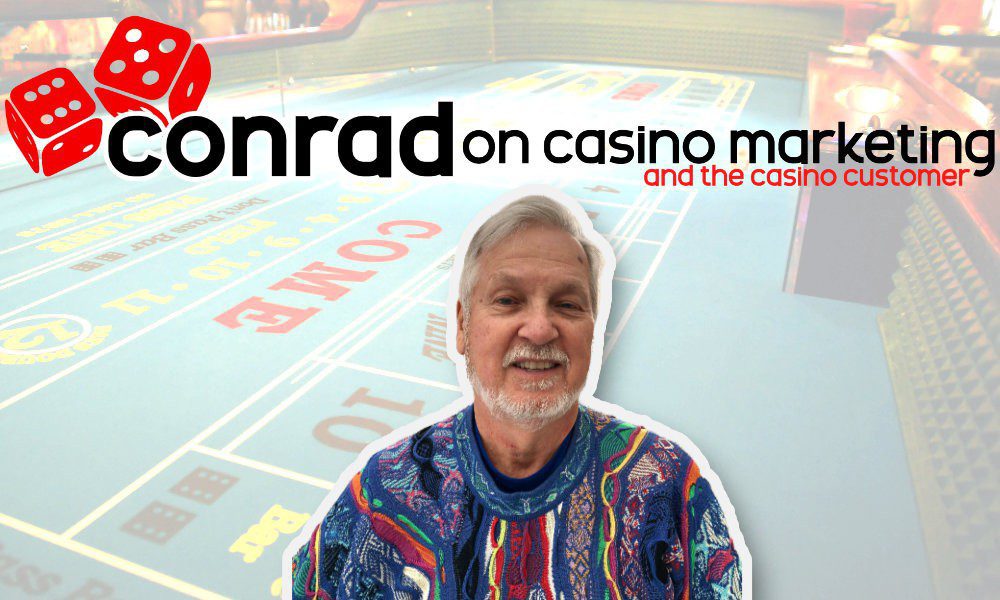I’ve known countless VIP players in my 50 years in the casino industry. Most of them, I met in my roles as a casino executive or consultant. Some of them, I met when I was a casino player myself; at various places and various times, I’ve been awarded various levels of a VIP casino customer. That doesn’t come cheaply.
I consider a couple hundred of these VIP players to be friends and a dozen or so I stay in contact with somewhat regularly. A small handful of this group I’d call “trusted advisors” based on their business acumen, breadth of experience as a VIP casino player, and ability to give candid insightful and valuable feedback.
Which leads me to “George” (not his real name).
George has been a friend of mine for over 20 years and a VIP player for longer than that. I had dinner with him when we were in the same city recently and it was good to catch up after not seeing him for a few years. George is my most knowledgeable and trusted “VIP casino customer advisor.”
While George and I were chatting and I was sharing what I’d been up to recently, it occurred to me that George would make for a great column on VIP casino marketing!
So I asked George if I could interview him on his lifelong experience as a VIP and use it in my CDC Gaming column. He graciously agreed and asked only that I not use his real name or mention any specific casinos. He’s by no means an advantage player, but I guess he doesn’t want to potentially publicly disparage any of the casinos that he still frequents.
So here’s the condensed version from that delightful hour I spent with George, the VIP Player. He didn’t hold back. And you should pay close attention to what he had to say.
Dennis Conrad: Thanks for doing this, George. I owe you one.
George: No problem, Dennis, my pleasure. I know you’ve always had the best interests of the best players at heart.
DC: Thank you, that’s very kind. Let’s start out by describing your background and what kind of a VIP casino player you are.
George: Sure. As you know, I travel a lot in my work and gambling is my favorite pastime. In the 20 years that I’ve known you, I’ve been to over 100 casinos of all kinds, mostly in the United States, but several in Canada and a few in Europe and Asia. My gambling budget is $1,000-$2,000 a month (some months I spend more). That amount certainly doesn’t allow me to be a VIP at 100 casinos, but I’m usually an upper-tier player at two or three of them at any one time and I’m typically a top-tier player at one casino in my hometown. I like to play blackjack, craps, and video poker. I’ll play a little bit of slots when I’ve been winning and don’t mind blowing a little bit back while playing next to my wife. She joins me at the casino occasionally when I’m in town or when she accompanies me on a trip. I frequently use the hotel, restaurants and bars at casinos and occasionally the spa if they have one.
DC: Do you have an executive host at any of these casinos and what do you think of the host service for VIP players?
George: Except in my hometown casino, I haven’t had much occasion to utilize a host, either because I don’t need much of what a host does for players or because I visit those casinos so infrequently. And I’ve never ever requested to have a host. But I can’t tell you the great many times I’ve been “awarded” a host, who then starts to contact me repeatedly for all kinds of reasons, mostly to get me to come back and spend more money. And that’s my first piece of advice for marketing directors and host managers. You should always ask the player first if they would like a host and if it’s OK for them to contact you.
DC: It sounds like you’re not enamored with the whole host apparatus.
George: Don’t get me wrong. I’ve met some hosts who are great people and terrific at what they do. But some time ago, I discovered that hosts are paid and given bonuses on their ability to get VIPs to come in and spend more money. Not only does that seem like a conflict of interest and make it appear that the hosts may not have the VIP player’s best interest at heart, but it never seems like hosts ever ask if a VIP wants to spend more money at a casino or even can afford to. It also creates some situations that I just don’t like. For instance, I’ve had hosts contact me when they’re trying to fill a show at the casino. I’m sometimes told they only have eight VIP tickets left, but they’ll hold two for me if I can commit now. I’ve actually done that (when I was a fan of the entertainer), but didn’t like it when I went to the show and it was only 80% full and the VIP section had scores of empty seats. I felt that I’d been strong armed and hustled.
DC: What about other aspects of the VIP player’s experience?
George: Well, most casinos now execute VIP parking pretty well, having it convenient and close to the casino entrance. The only issues I occasionally see with VIP parking are when there’s not enough of it, or it’s not patrolled well enough so non-VIPs start to use it, or the very best parking spots (which should be VIP player parking) are used for casino, regulatory, or corporate executives. Not a good look. I do like the ability to turn my accumulated VIP comps into free play in the casino and many places now allow that. I like the VIP events where players are hosted at private dinners, events, and tournaments, not only by the executive hosts themselves, but also by other members of management. It says a lot that they’re willing to spend time with living breathing VIPs, especially if they don’t mind (or even invite) those players bending their ear. I did like the VIP lounges that sprouted up at may casinos (sometimes in a gaming area, sometimes not), where VIPs could have some complimentary drinks or appetizers. But now these lounges have either been removed, had hours reduced, or have made the free food and beverage options so weak that VIPs now feel a little insulted by them. That’s an area that a casino should try to get right, because VIP players really like it.
DC: Are there other things that marketing and host departments should be paying attention to?
George: Well, here are a few off the top of my head.
When a player moves down in VIP status, don’t insult them with cheap offers. If I’ve been receiving a $100 monthly free play offer and now it’s only $5 monthly, I’m sure that won’t get me (or anyone else) to come in. I know my play may have declined or disappeared completely, but does anyone know my circumstances? Maybe I’ve taken a long vacation or a break from gambling. Or worse, I’m now playing with a competitor. I’d think you’d want to know that before you make a cheap offer to a VIP.
When a casino has a VIP hotel reservation line or a VIP line at various outlets in the casino (restaurants, players club, hotel check-in, etc.), please make sure it really is a VIP experience. Too often, it doesn’t feel special at all.
A few more things with hosts. Hosts should be trained not to interrupt VIPs while they’re playing or at least shown when and how they should do that. Hosts should always speak to VIPs in easily understood language — VIPs don’t always “get” things like “theoretical worth,” “tier level benefits,” “average daily trip worth,” and other “inside baseball” language. A VIP player should never get different answers from different hosts, but now it happens too frequently.
DC: Any final thoughts, George?
George: Only two. Stop sending me VIP communications on the “new and improved players club” when the only thing new is that player benefits have been reduced. And second, please get rid of the term “player development.” I’m a player, but I don’t want to be “developed,” thank you very much. I can do that myself. Host me, but don’t develop me.
DC: Thanks, George. We’ll have to do this again and you can tell me what you really think.



